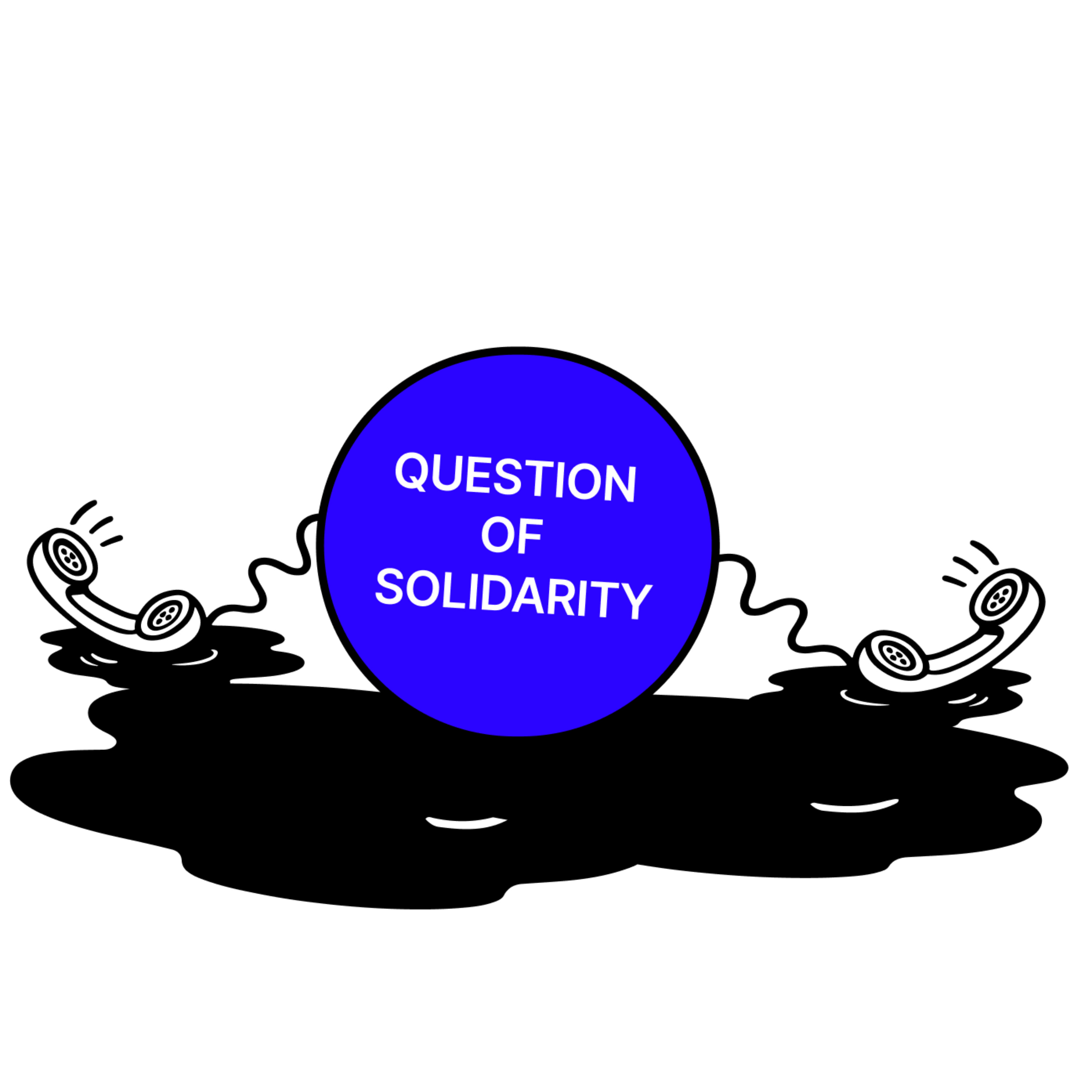Radio Unheard

Radio Unheard
Podcast Description
Radio Unheard is a podcast for cultural professionals exploring the ethical dilemmas around the intersection of art and politics.
In the debut season, we dive into the murky waters of solidarity—we look at how solidarity has been shaped, stretched, and sometimes broken across time and space—from archival alliances of the past to improvised gestures of support today. Along the way, we ask: how do we build solidarity? On what ground? And who gets to stand on it?
Radio Unheard is supported by the European Union under the House of Europe programme.
www. radiounheard.org
Podcast Insights
Content Themes
The podcast focuses on the theme of solidarity, covering topics such as the challenges faced by displaced individuals, the ethical implications of international aid, and historical perspectives on solidarity movements. Examples include episodes analyzing the Temporary Protection status for Ukrainian refugees and exploring the societal implications of perceived fake generosity in support systems.

Radio Unheard is a podcast for cultural professionals exploring the ethical dilemmas around the intersection of art and politics.
In the debut season, we dive into the murky waters of solidarity—we look at how solidarity has been shaped, stretched, and sometimes broken across time and space—from archival alliances of the past to improvised gestures of support today. Along the way, we ask: how do we build solidarity? On what ground? And who gets to stand on it?
Radio Unheard is supported by the European Union under the House of Europe programme.
www. radiounheard.org
This episode tries to articulate that the work of any art institution is political. Whether we consciously acknowledge and engage with this fact or prefer to ignore it, the outcomes of our actions in the public sphere inevitably shapes the policies of the field we work in and, more broadly, the world we live in. Some institutions choose to play by existing rules and benefit from obedience. But this conversation is about the institution that chose another path.
Here Asia Tsisar speaks to Maria Hlavajova, organizer, researcher, pedagogue, curator and the founding director of BAK, basis voor actuele kunst in Utrecht. After 25 years of work, BAK has been defunded this year by both the city of Utrecht and the Dutch National Arts Council and it currently remains closed. Radio Unheard invited Maria to speak about the legacy of BAK of power of imagination and about the distinction between being political and doing things politically.
_____________________________
Maria Hlavajova has been the founding general and artistic director of BAK, basis voor actuele kunst, Utrecht, since 2000. In 2008-2016 she was research and artistic director of FORMER WEST, which she initiated and developed as an internationally collaborative research, education, publication and exhibition project, culminating in the publication Former West: Art and the Contemporary After 1989 (co-edited with Simon Sheikh, 2017). Hlavajova has instigated and (co-)organised numerous projects at BAK and beyond, including the series Propositions for Non-Fascist Living(2017-ongoing), Future Vocabularies (2014-2017), and New World Academy (with artist Jonas Staal, 2013-2016), among many other international research projects. In 2011, Hlavajova organised the Roma Pavilion entitled Call the Witness at the 54th Venice Biennale, Venice, and in 2007 she curated the Dutch Pavilion entitled Citizens and Subjects at the 52nd Venice Biennale, Venice. In 2000, Hlavajova co-curated Manifesta 3 in Ljubljana, entitled Borderline Syndrome: Energies of Defence. Hlavajova is also co-founder (with Kathrin Rhomberg) of the tranzit network, a foundation that supports exchange and contemporary art practices in Austria, the Czech Republic, Hungary and Slovakia. She was a faculty member at the Center for Curatorial Studies, Bard College, Annandale-on-Hudson, NY (1998–2002), and director of the Soros Center for Contemporary Arts in Bratislava (1994–1999).
BAK, basis voor actuele kunst, Utrecht is a base for art, theory, and social action. BAK is committed to the notion of art as a public sphere and a political space, and provides a critical platform for aesthetico-political experiments with and through art. BAK brings together artists, thinkers, and other members of the precarious classes to imagine and enact transformative ways of being together otherwise. BAK Basecamp collective 2025: Jeanne van Heeswijk, Lisanne van Vucht, Alejandro Navarete Cortés, Esther Dascha Westra, Grace Lostia, Stichting Spoorloos, Collored Qollective, New Women Connectors, Triwish Hanoeman, Merve Bedir, Sophie Mak-Schram, Iliada Charalambous, Sandra Lange, Joy Mariama Smith, Dina Mohamed, Molemo Moiloa, Laura Raicovich, Jonas Staal, Mick Wilson, Raidan Abdul Baqi Shamsan, Mustapha Eaisaouiyen, Ehsan Fardjadniya, a.o.
_____________________________
It has been a long road to organize this conversation and Radio Unheard is deeply grateful to Yulia Elias, Dutch Culture and Ukrainian Institute for connections, moments and conversations that made this episode possible.
_____________________________
Radio Unheard is supported by the European Union under the House of Europe programme.
The content is the sole responsibility of the authors and does not necessarily reflect the views of the European Union.
Want the full story? Visit radiounheard.org to explore each episode and subscribe to the newsletter, so you don’t miss anything.
Follow:

Disclaimer
This podcast’s information is provided for general reference and was obtained from publicly accessible sources. The Podcast Collaborative neither produces nor verifies the content, accuracy, or suitability of this podcast. Views and opinions belong solely to the podcast creators and guests.
For a complete disclaimer, please see our Full Disclaimer on the archive page. The Podcast Collaborative bears no responsibility for the podcast’s themes, language, or overall content. Listener discretion is advised. Read our Terms of Use and Privacy Policy for more details.